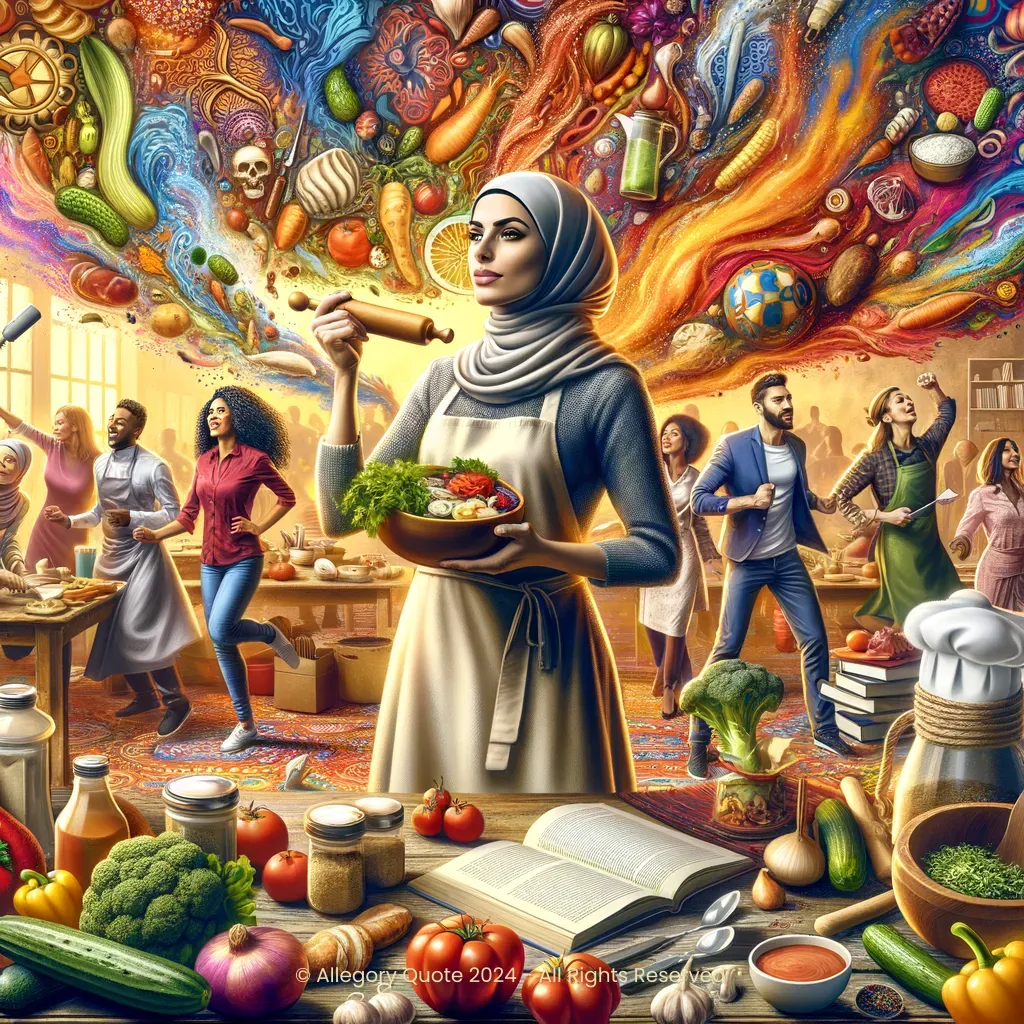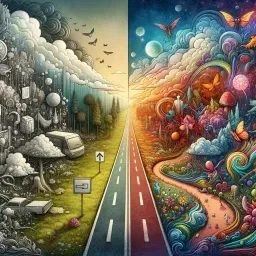Anyone can cook, but only the fearless can be great

0
0
0
0
- Meaning
- The phrase implies that the journey to greatness—whether in cooking or other fields—demands bravery and readiness to step outside one's comfort zone. It suggests a fundamental aspect of human experience: the fear of failure often holds people back from pursuing their true potential. Philosophically, this idea resonates with existentialist thoughts about authenticity and personal growth, advocating that greatness is not simply a result of skill but also of daring to be bold and distinctive.
- Allegory
- The image would illustrate the concept of the phrase by showcasing individuals from different backgrounds engaging joyfully in creative cooking endeavors. The central figure represents the fearless approach to cooking, highlighting that greatness emerges from embracing challenges. The colorful ingredients and tools symbolize the vast possibilities available when one dares to explore their potential.
- Applicability
- To apply this phrase in everyday life, one can embrace challenges and pursue their passions actively, even in the face of fear. This might mean trying new recipes in cooking, taking bold career risks, or expressing oneself creatively without fear of judgment. The lesson here is to cultivate fearlessness as a pathway to realizing one's potential.
- Impact
- The phrase has had a significant impact, especially among aspiring chefs and cooking enthusiasts, as it encapsulates a motivational idea that resonates with anyone chasing greatness in their field. It has inspired discussions about creativity, risk-taking, and passion in both culinary and broader contexts. This quote is often referenced in cooking classes and workshops as a call to embrace one's creativity.
- Historical Context
- While the exact wording may not have a known historical context tied to it, the film 'Ratatouille' was released in 2007, and its themes reflect the modern culinary world, celebrating innovation, diversity, and personal storytelling in the kitchen.
- Criticisms
- Some might argue that this phrase downplays the importance of education and training in achieving excellence. Critics could suggest that not all great chefs act without fear; many may be meticulous and restrained in their approach. To refute this, one could argue that fearlessness can manifest as confidence in one's skills, allowing for exploration and innovation, which is essential in any artistic endeavor.
- Variations
- A variation of this phrase could be found in other cultures, where the value of courage in pursuing one's dreams is emphasized, such as in the Chinese proverb, 'The journey of a thousand miles begins with a single step,' highlighting the importance of taking bold initial actions.
-

You never forget kids like Emily, or Andy, but they forget you.
-

You don’t need a cape to be a hero.
-

I have no special talent. I am only passionately curious.
-

The very things that hold you down are going to lift you up.
-

All it takes is faith, trust, and a little bit of pixie dust.
-

We scare because we care.
-

Logic will get you from A to B. Imagination will take you everywhere.
-

You are a toy!
-

Fai di ogni passo una tua scelta. Crea te stesso e assumitene l’intera responsabilità.
-

The problem is not the problem. The problem is your attitude about the problem.
No Comments